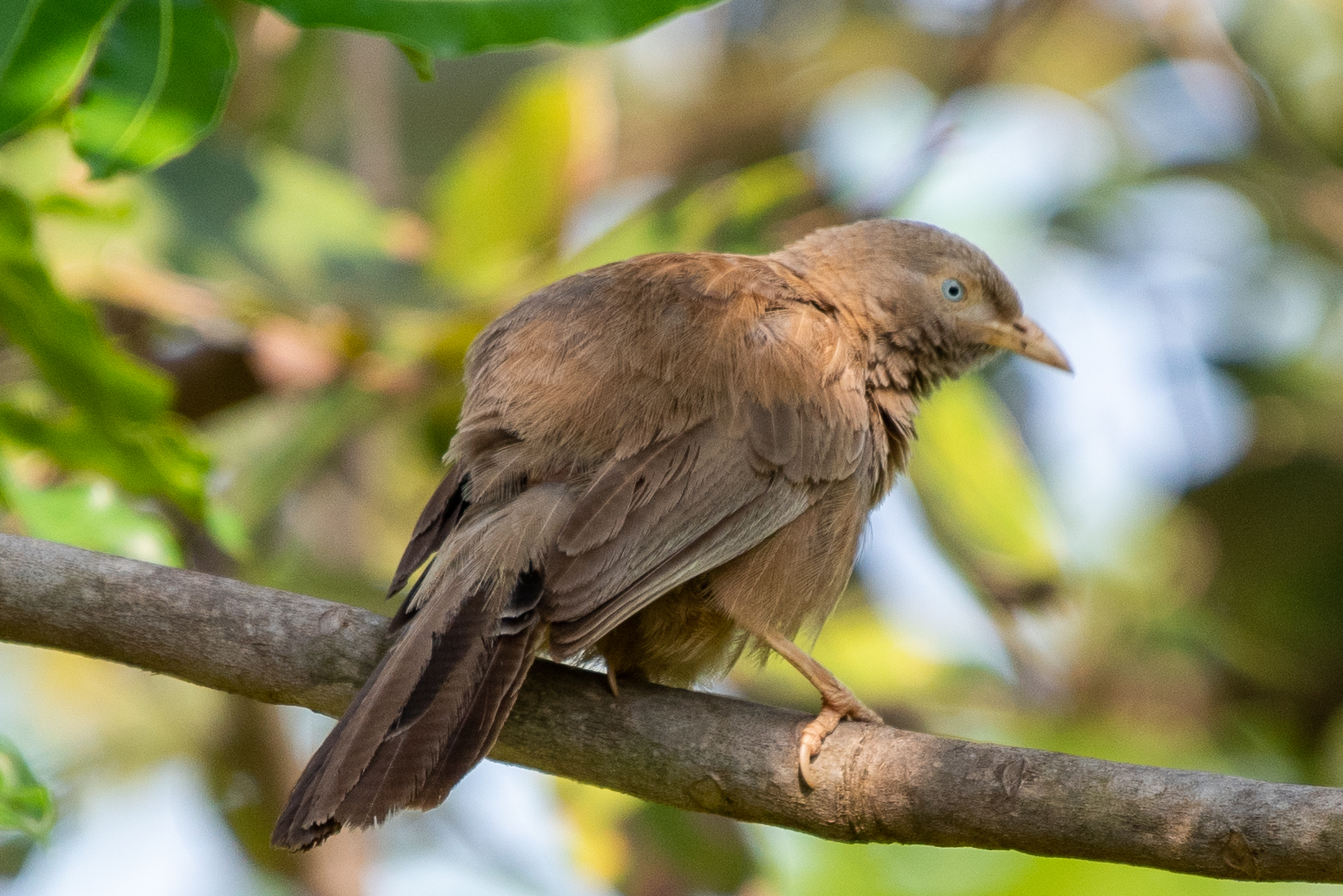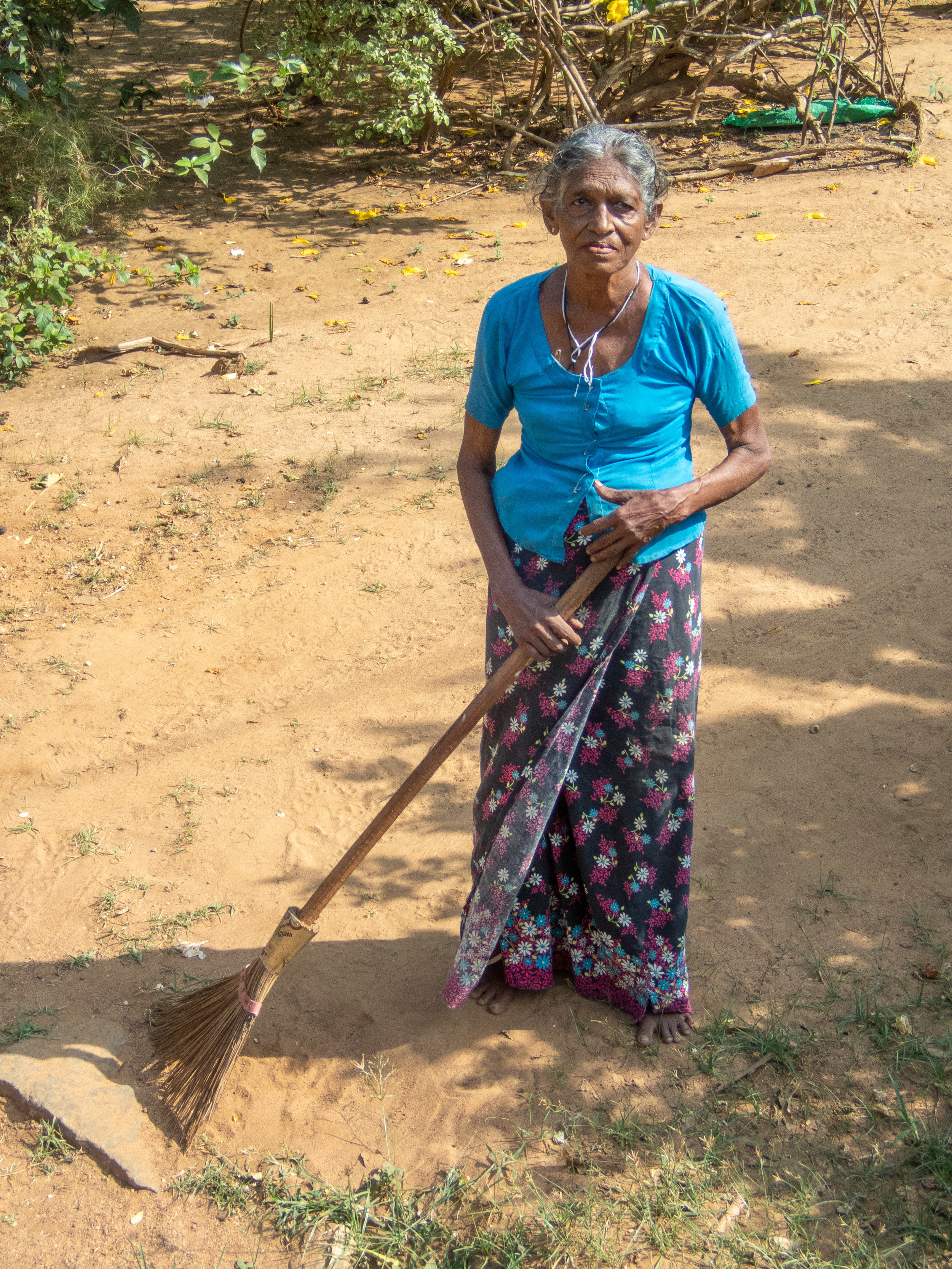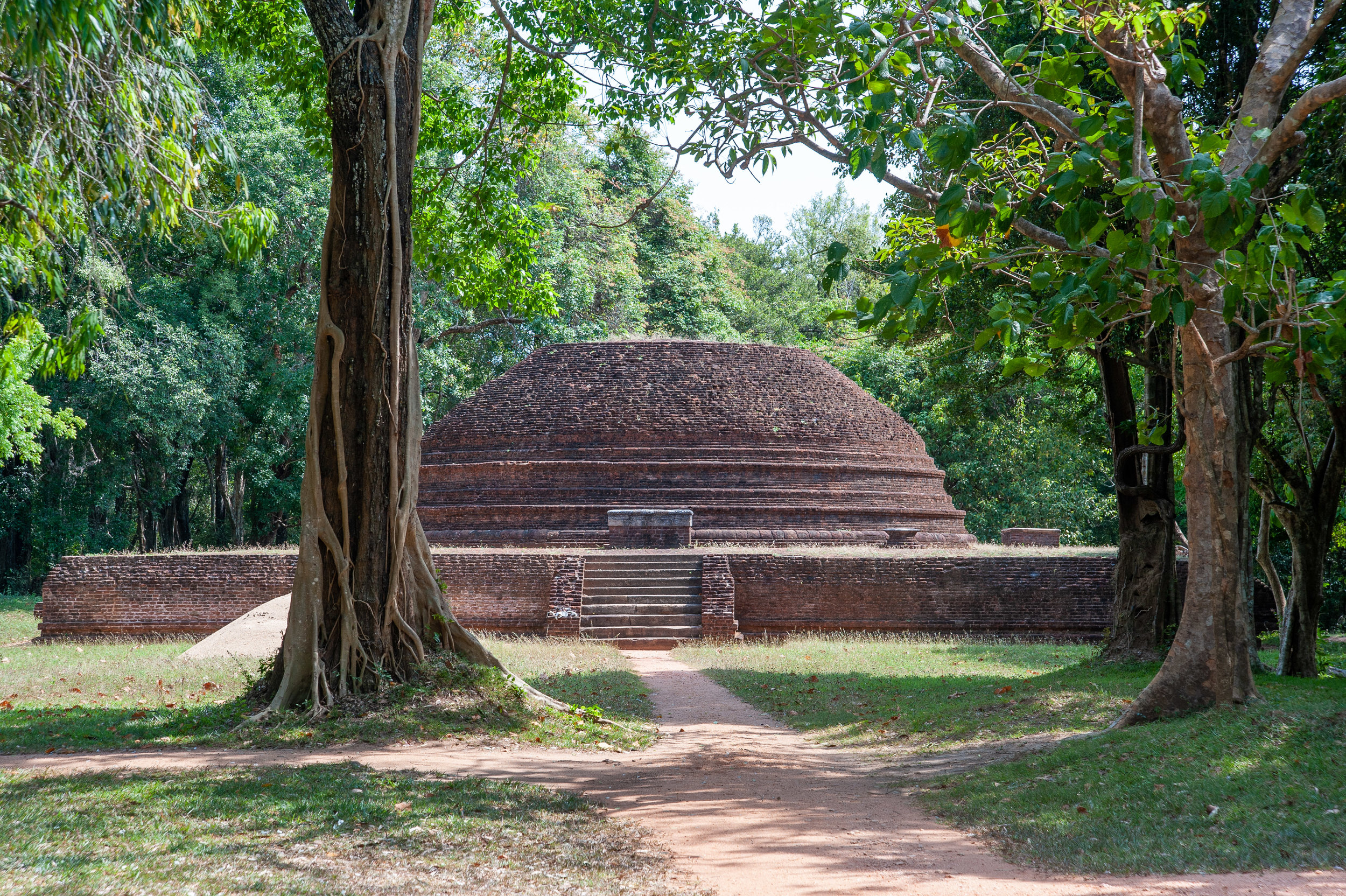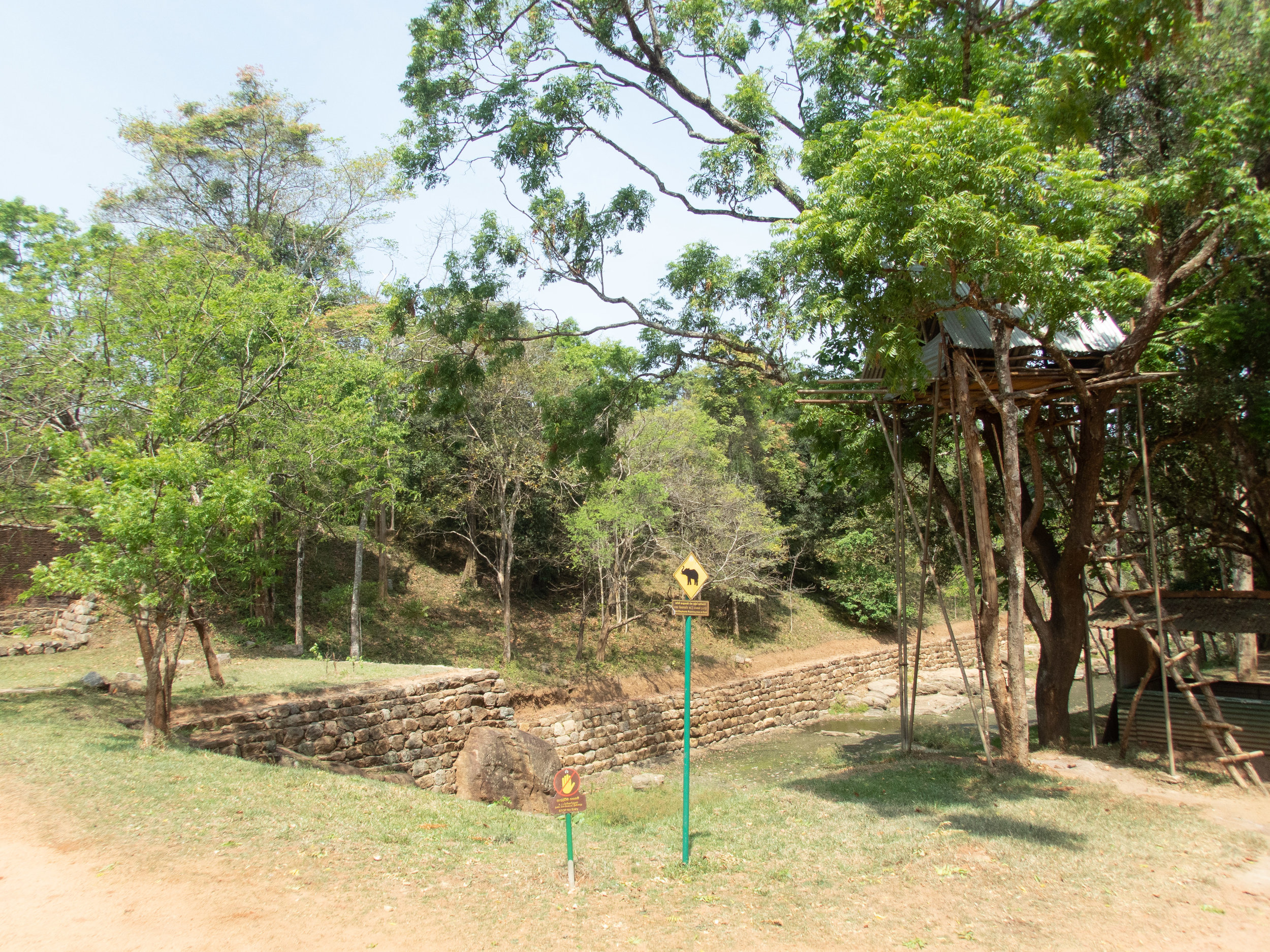We had the luxury of a relaxed start this morning with breakfast at 07:00 and the morning’s sight seeing activities not commencing until after 08:00.
Our local guide Warner and his assistant driver arrived with the two off-road vehicles and we headed off in the general direction of Sigiriya along a narrow gravel road. There were small land holdings adjacent to the road with typical rural houses in various states of completion. Land is acquired from the government on a ninety-nine year lease basis although prospective lessees are required to have a reasonable financial status before being accepted. Some of houses were painted bright pink and a number had circular motifs painted on their front walls supposedly to ward off evil spirits.
Village house, near Habarana
Motif on village house, near Habarana
It being the dry season means that rainwater tanks are mostly empty so water has to be collected from communal wells. Hand pumps are used to bring up the water and then it is carried on the head or by wheelbarrow back to the home. We were informed that one lady we saw carrying water had about a kilometre to travel for water collection.
Woman pumping water, near Habarana
As there were many trees along the roadside we kept looking for bird life and amongst the species seen were white-throated kingfishers, black robins, yellow billed babblers, emerald doves, fish eagles and a single (female) paradise flycatcher.
Asian Paradise flycatcher, near Habarana
White-throated kingfisher, near Habarana
Yellow-billed babbler, near Habarana
Indian black robin, near Habarana
Many of the farms are involved in rice growing although at this time of the year the rice paddies are dusty dry! However, when the rice crop is reaching maturity, farmers have to be wary of elephants coming in and eating/destroying their harvest. To overcome this problem they have tree huts set up in key places around the paddies so they can scare off the elephants using fire-crackers. The rice farmers spend their nights being vigilant in the tree huts.
Watch tower for elephants, near Habarana
An ancient wooden cart pulled by two bullocks was an interesting sight and the owner seemed very pleased to see our desire to get photos of his wagon and cattle.
Farmer with ox cart, near Habarana
We then passed a community farm where women were planting out onion seedlings. A man without facial protection was spraying the seedlings with a hand-pumped spray can.
Onion farm, near Habarana
Women going to plant onions at onion farm, near Habarana
We saw some houses that had been built from mud. The mud used is often from termite mounds as this has strong cementing properties. The house owners tend to keep the areas around their houses swept because a build up of leaves provides an ideal cover for snakes, some such as the cobra being exceedingly venomous.
Mud brick house, near Habarana
Woman sweeping yard, near Habarana
Village woman, near Habarana
Along the road were a number of fruit trees and the ones we noted were mango, lime, wood apple and jack-fruit.
A highlight of the morning was to see the Sigiriya Rock although we didn’t do the climb to the 200 m high top.
Sigiriya Rock, Sigiriya
This giant gneiss rock has at its top an ancient citadel built as an impregnable fortress by King Kasyapa in the mid fifth century. The ruins at the summit were discovered by British archaeologists in the early twentieth century. The summit has an area of around two hectares and was once covered with buildings but now only foundations remain. The stairway leading to the summit is exceedingly steep in parts so we were told. We could see people climbing near the summit and they appeared like ants against this massive monolith. The Sigiriya Rock location has been declared a UNESCO World Heritage Site since 1982.
Around the base of the rock we visited ruins associated with the kingdom. There was a 7th century stupa but much of its upper section had been destroyed. Nearby were the remains of the Chapter House which looks a little like a mini Stonehenge. The large granite pillars are the ruins of a large building used to house the king’s guards that patrolled the level below the rock.
Stupa, Sigiriya
Chapter house, Sigiriya
Moon stone & elephant guard stones at Chapter House, Sigiriya
Apart from the rock providing an impregnable fortress, there was a moat around the base of the rock with crocodiles to further discourage intending invaders.
Moat around palace, Sigiriya
We then adjourned for lunch at Warner’s home. The lunch was a typical Sri Lankan meal with rice, chicken and an assortment of plain and curried vegetables. It was a very tasty repast and the hospitality shown by Warner and his family was delightful.
Lunch at Warner's house, near Habarana
We returned to the Cinnamon Lodge Hotel at 13:00 and had a quiet afternoon in preparation for a big day of travel and sight seeing tomorrow.
Cinnamon Lodge, Habarana
Swimming pool, Cinnamon Lodge, Habarana
Pre dinner drinks, Cinnamon Lodge, Habarana























